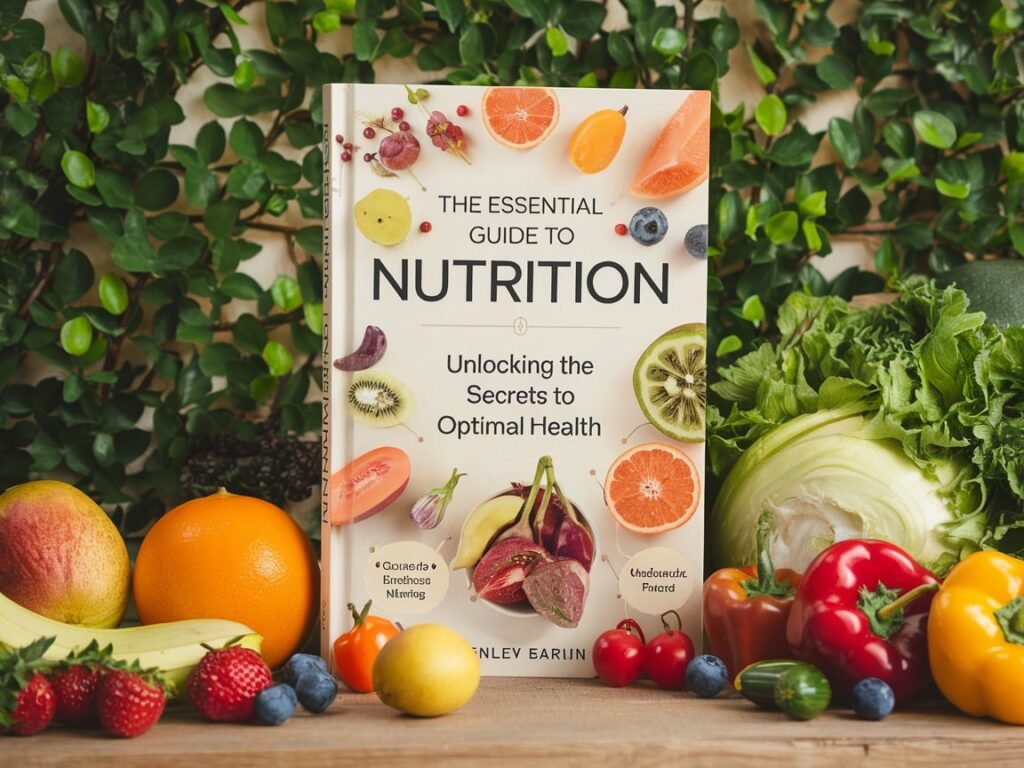Introduction
Nutrition is a cornerstone of health and well-being, impacting everything from energy levels to disease prevention. In today’s fast-paced world, understanding the fundamentals of nutrition has become more crucial than ever. This guide delves into the essentials of nutrition, equipping you with the knowledge to make informed dietary choices.
Understanding Nutrition: The Basics
What is Nutrition?
Nutrition refers to the process of obtaining and utilizing food to support life. It encompasses both macronutrients (carbohydrates, proteins, and fats) and micronutrients (vitamins and minerals). Each plays a vital role in bodily functions, from energy production to immune support.
The Science of Nutritional Needs
Nutritional requirements are not one-size-fits-all. They vary based on factors such as age, gender, activity level, and overall health. A balanced diet provides the necessary nutrients to maintain optimal health, and understanding these needs is the first step toward better nutrition.
The Role of Macronutrients in Your Diet
Carbohydrates
Carbohydrates are the body’s primary energy source. They are categorized into simple carbohydrates (sugars) and complex carbohydrates (starches and fiber). Fiber, a type of complex carb, is crucial for digestive health and can help prevent chronic diseases.
Proteins
Proteins are essential for building and repairing tissues, making them vital for overall health. They can be sourced from both animals (meat, dairy) and plants (legumes, nuts). A varied intake ensures you get all the necessary amino acids for optimal function.
Fats
Fats are often misunderstood, but they are vital for hormone production and nutrient absorption. Healthy fats, such as those found in avocados, nuts, and olive oil, support heart health, while trans fats and excessive saturated fats should be minimized.
Micronutrients: The Unsung Heroes of Nutrition
Vitamins
Vitamins are organic compounds that play numerous roles in bodily functions. For instance, Vitamin C supports the immune system, while B vitamins are crucial for energy metabolism. Common deficiencies, like Vitamin D, can lead to serious health issues.
Minerals
Minerals, such as calcium and iron, are essential for various bodily functions, including bone health and oxygen transport. A well-rounded diet rich in fruits, vegetables, and whole grains typically provides adequate mineral intake.
The Impact of Nutrition on Health
Weight Management
A well-balanced diet is critical for weight management. Understanding caloric intake versus expenditure can help you maintain or lose weight effectively. Emphasizing whole foods over processed options is a practical approach.
Disease Prevention
Proper nutrition is linked to lower risks of chronic diseases such as diabetes, heart disease, and certain cancers. Incorporating antioxidants and anti-inflammatory foods into your diet can further enhance health and longevity.
Building a Balanced Plate: Practical Tips
Meal Planning and Preparation
Effective meal planning can save time and ensure that you stick to healthy choices. Preparing meals in advance allows you to control ingredients and portion sizes, making it easier to maintain a balanced diet.
Reading Nutrition Labels
Understanding nutrition labels is crucial for making informed choices. Look for key information such as serving size, calorie content, and nutrient breakdown to help guide your purchases.
Common Nutrition Myths Debunked
The Low-Carb Myth
Low-carb diets have gained popularity, but the misconception that all carbohydrates are harmful is misleading. Carbohydrates are essential for energy, especially for active individuals. Balance is key.
Supplements vs. Whole Foods
While supplements can help fill nutritional gaps, whole foods provide a complex array of nutrients that work synergistically for better health. Prioritizing a whole-food diet is often more beneficial than relying solely on supplements.
Emotional and Psychological Aspects of Nutrition
The Relationship Between Food and Mood
There is a significant connection between nutrition and mental health. Diets high in sugar and processed foods can negatively affect mood, while nutrient-dense foods support emotional well-being.
Mindful Eating
Mindful eating encourages awareness of hunger and satiety cues, promoting a healthier relationship with food. Practicing mindfulness can help prevent overeating and enhance the enjoyment of meals.
Conclusion
Understanding nutrition is essential for achieving optimal health. By prioritizing a balanced diet rich in whole foods, you can enhance your overall well-being and prevent chronic diseases.
Call to Action
Take a moment to evaluate your current dietary habits. Consider making small, manageable changes to your eating patterns and consult a healthcare professional for personalized advice. Explore resources for meal planning and further reading to deepen your understanding of nutrition.

